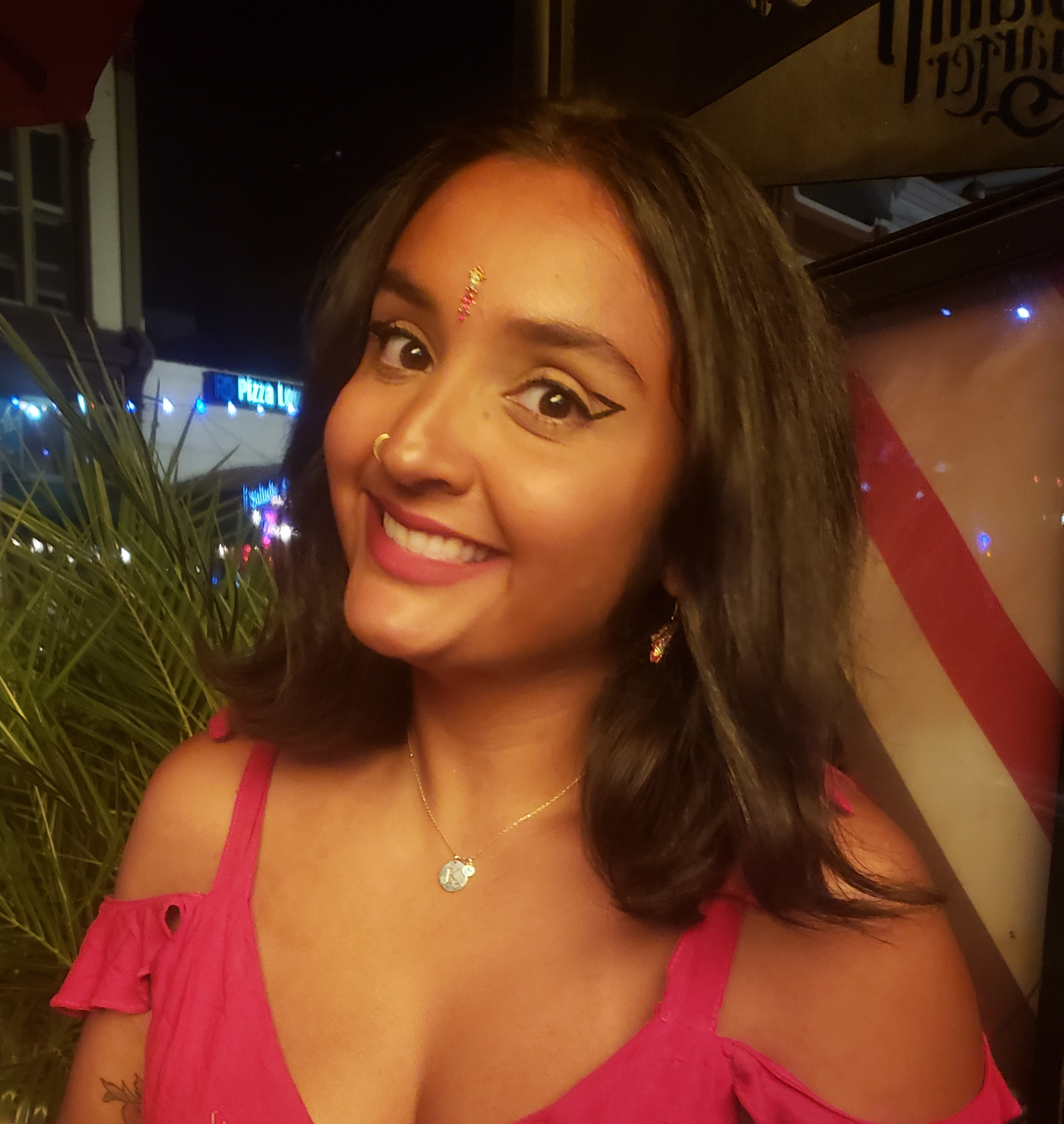From the ’60s throughout the 2000s, there has been a boom in working moms—femmes who had both a career and a family. These people wanted to show that they didn’t have to choose between a career and kids—they could have both. Young femmes who grew up during this time were surrounded by messages that told us that in order to be successful, we had to have both a working career and children by a certain age.
I grew up in the ‘90s with a working mom and have felt the pressures to achieve the same success as her for most of my life. But, as many of us are growing older, we are not only questioning the timing constraints that come with outdated pressures, but questioning whether their measurements of success align with our own.
Many of us are now actively creating a life for ourselves that looks vastly different from our ancestors before us. It is a revolutionary movement in radical reclamation of our choices and our time.
There are many different trails that femmes are choosing for themselves and no two can look the same. My favourite shift I’ve become aware of within my friend groups is femmes starting post secondary programs later in life. When I started UBC in 2011, my classes were filled with people my age, with the odd person a few years older. Going to University as soon as I graduated high school felt like a requirement because that’s what I was taught success looked like.
Looking back, going into a post secondary program right away was a choice I made out of fear of being perceived poorly by my family and peers. Choosing to start schooling later gives us the opportunity to better understand our goals and ultimately make more empowered decisions, and I wish I had given myself time to explore my interests before making such a big commitment.
Marriage and children are other areas where big shifts are occurring . These traditional ideals aren’t a given anymore—especially when the idea of being “the cool Aunt that travels” becomes more and more appealing. People that are choosing to get married don’t necessarily want children and those that are having children are more likely to do so after they gain stability within their own lives and careers, whether marriage is involved or not. The common thread for married or long term couples is the desire to choose joy and choose themselves.
And careers are more than just your typical 9 to 5. There are a multitude of routes femmes are taking for themselves. The same day a new femme owned business is opening up, another has decided a full time career isn’t for them.
So what’s happened? Why does it feel okay for us to make choices like this, when these lifestyles felt like the epitome of failure to many femmes in previous generations? I believe this is because we are deciding what is worthy of our time, instead of being told how we should use it. What we are learning is that there are no general right or wrong ways to do things, only right or wrong ways for us as individuals.
Declaring that our needs matter, choosing ourselves and our joy is an act of resistance and revolution. It is a movement that has been a long time coming. Each wave of feminism aims to bring us closer to freedom of choice, with all of our ancestors before us paving the way. With gratitude to them, we are able to say “no” to lives we don’t want and “hell yes!” to a life we desire. Of course there is always resistance to the resistant.

My life path is following a very different trajectory from my mom’s. By 30, she was married with her first child (me) and had been working with the same company since she was a teenager. At 30, I am the embodiment of everything I was scared to become after graduating with an arts degree. I am not where I thought I was going to be 12 years ago, eight years ago, or even two years ago.
After graduating from UBC with a Political Science degree in 2015, I felt as unsure about what I wanted to do with my life as I did when I was a child. When I was 10, I was watching an episode of Recess where the gang was talking about what they wanted to do when they grew up. I started to think about what I would like to be and the only thing that came up for me was a squeezing tightness in my chest that made breathing really difficult. At an early age, I was already feeling the pressure of choosing a career and sticking with it, like my parents had. I didn’t like this feeling at all and told myself I could figure it out in eight years when I was graduating from high school. Then, high school ended and I told myself that was what University was for!
I still haven’t figured it out but it’s not for a lack of trying. Where most members of my family valued stability and consistency in their careers, I’ve valued exploration. I am not saying one is inherently better than the other, but that the option of exploration has always been my chosen path.
I did know one thing after graduating with my degree and that was that I wanted to work for a non-profit. At 23, I had little work experience aside from working for more than seven years as a cashier. I applied for a job to work as a street fundraiser for various non-profit–this job pushed me out of my comfort zone like no job had done before. It was daunting for me to continuously approach strangers all day and convince them to sign up for a monthly donation to a charity they’d likely never heard of before. It was important to me because I viewed it as the stepping stone into my career and I was willing to put in all the hard work if it meant I could move up into a big charity and help change the world for the better.
I got to meet a lot of cool people that are still a large part of my life today and have helped shape the person I am now.
When I eventually moved into a stable office job that would give me health and make-your-parents-proud benefits, I quickly learned this wasn’t the right space for me. I was the most unhappy I had ever been in a workplace. After a couple years of trying to convince myself that I should be happy and grateful to have this position, I decided I needed to leave and give myself some time off to consider what I wanted to do next with my career.
In that time away from the working realm, I began to develop a healing collective and series of workshops meant to empower BIPOC women, trans women and non-binary people in my community. I mistakenly believed the Universe would greatly reward me for finally pursuing my higher purpose and am still working up the courage to try this initiative again. At this point, I thought there was never going to be a better time to pursue another one of my dream jobs: working as a whale watching guide. Although this job allowed me to spend time with some of my favorite creatures, the workplace culture and demands of the company were almost inhumane (12-hour working days with no overtime pay or breaks) and I left after two months. Now, I work part-time at a bakery with a not-entirely clear vision of what I’m doing/what I’d like to be doing/what I’m going to be doing to financially sustain myself.
Does that feel scary to me? All the time. And that tightness in my chest never fails to come up when I think about my work life. What grounds me is remembering that being 30—despite what the narrative says—does not mean that my life has to be fully figured out and set in stone anymore.
I am here to celebrate my choices. Because rather than categorizing success as picking one line of work and sticking with it until I retire, I am giving myself the space to explore what I like and desire in work. Instead of setting a deadline for marriage and kids by a certain age, I am trusting that it will all work out and allowing it to come together in a way that doesn’t feel forced. I could be stressing over not owning property yet, but that’s hard to do when you’re living in a dream apartment. I am taking the time to make mistakes and learn and grow without the pressures of pursuing a life I don’t feel ready to have.
This path of deciding what success looks like to us and creating our own timelines can rarely feel easy. To all the femmes who grew up hearing stories that positioned them to be happily married with kids in a house that they own by a certain age, and want that but don’t have that yet, you can still want that. I want that. Just not right now. And we can still have that, even if it’s not right now. And to all the femmes that have a different ideal in mind: all the power to you.
I often wish that I had met a partner early on, was working in a career I knew didn’t necessarily make me happy but sustained me financially, and was on my way to having kids. All for the sake of ease. But I should have learned from my history textbooks that being a member of revolution is never easy. It takes determination, commitment to your cause and the courage to follow through to make a revolution successful. I am committed to doing my part to ensure that the paths of those that come after me can feel even a little bit easier.
Author’s note: We have a long way to go in creating and using language that feels representative of all of us and I would like to take ownership in that movement. I found it difficult to find a word that covers cis women, trans women and non-binary folks who were assigned female at birth. A friend pointed out to me this is because the structure of our language is gender binary, and can never fully encompass everyone as long as we are looking at it through the lens of inclusion, instead of liberation. After doing some research, I chose to use “femmes” for the purpose of this essay.




